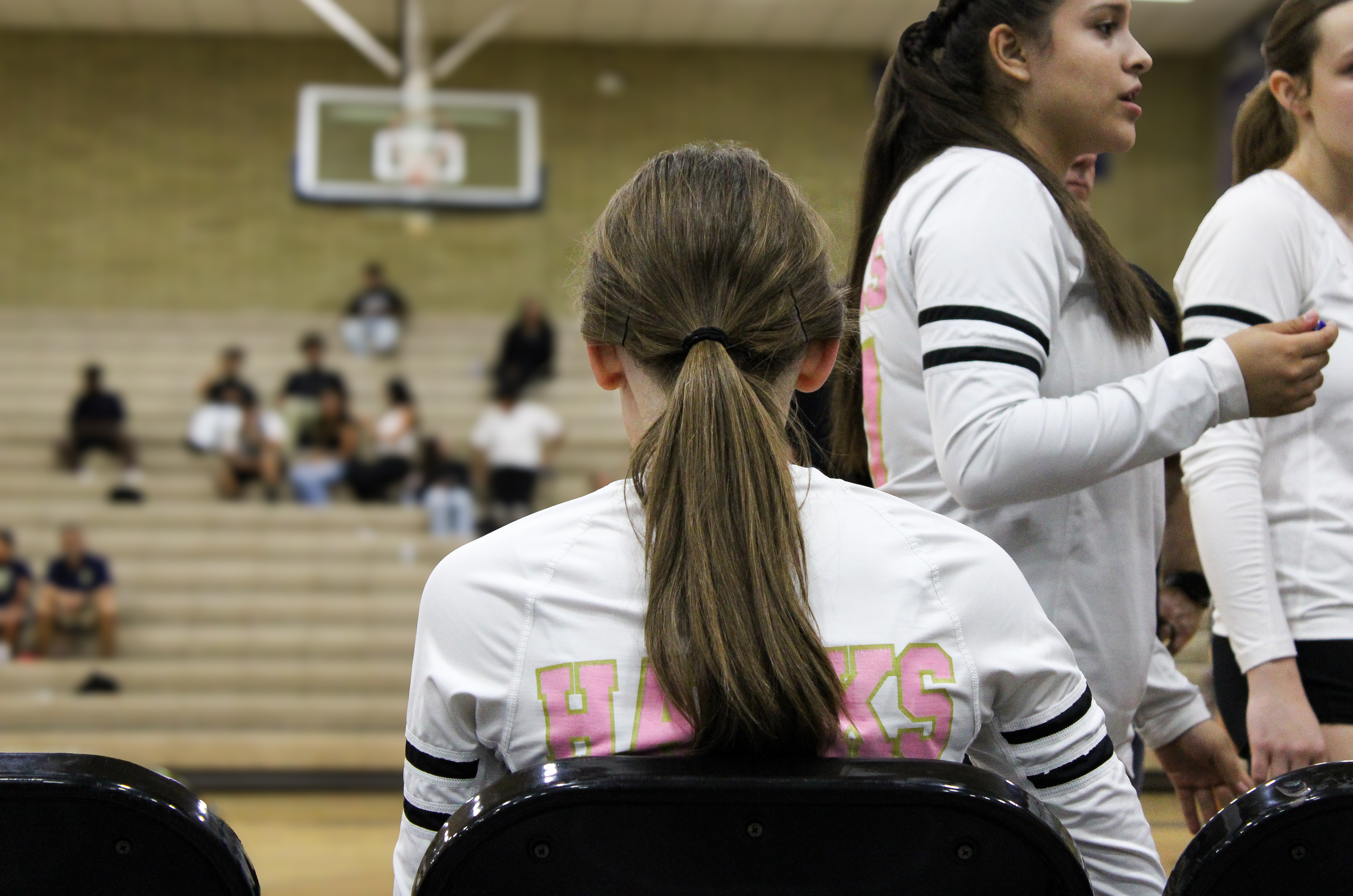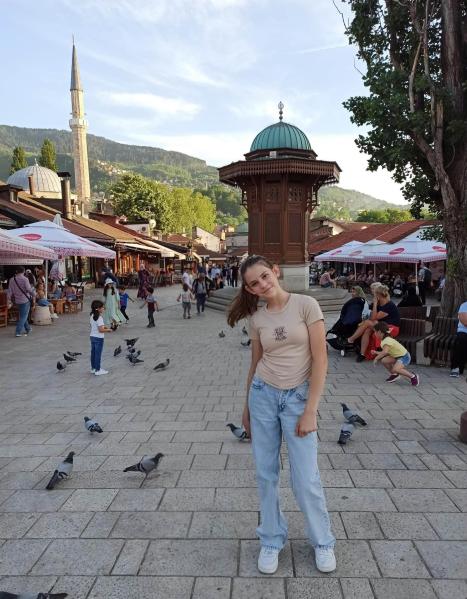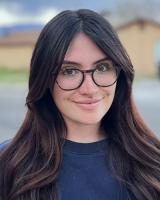Serves, sets, and second chances
October 30, 2025 by Bella Kubiak-Reseigh, Arizona State University

Bella Reseigh is an ASU Cronkite School of Journalism student assigned to cover Apollo High School for AZPreps365
GLENDALE — When the announcer stumbles over her last name, Laila Ahmespahic just smiles. The 16-year-old outside hitter for Apollo High School has grown used to hearing it pronounced every possible way. But to her, every serve, swing and cartwheel on the court is more than a game — it’s a reflection of how far her family has come.
Nearly three decades before Laila’s varsity debut, her parents were rebuilding their lives in the aftermath of the Bosnian War, an international conflict that ravaged Bosnia and Herzegovina between 1992 and 1995.
The war began on April 6, 1992, after Bosnia declared independence from the former Yugoslavia. By the time it ended, more than 100,000 people were dead and millions were displaced, making it Europe’s most devastating conflict since World War II.
“After the war, the economic crisis was really, really bad,” her mother, Sanela Ahmespahic, said. “My husband came here as a refugee in 2001, and I joined him later. We wanted to start our life here.”
She had been a labor-and-delivery nurse in Bosnia, but when she arrived in Arizona she chose to focus on raising a family before returning to school.
“When I came here, I decided I wanted to raise my family,” she said. “Now that everyone’s in school, I’m back working.”
For Sanela, adjusting to American life was daunting.
“It was challenging,” she said. “Laila’s the first one going to school here, so I had to learn everything with her.”
Mother and daughter discovered an unfamiliar education system together, learning how to navigate forms, schedules and expectations in a new language.
Laila grew up between two worlds — her parents’ memories of rebuilding in Bosnia and her own search for belonging in Phoenix. Standing 5-foot-6, she’s not the tallest outside hitter on the court, but she’s known for her quickness and relentless effort.

“Before, when I was younger, I used to be ashamed of being different,” she said. “But then I realized that’s me — it’s something special.”
A junior wearing No. 2 for Apollo High School’s varsity team, Ahmespahic plays in the 5A conference where the Hawks hold a 4-15 record this season.
“Volleyball is my relaxation,” she said. “It helps me get through my day.”
Her coach calls her one of the team’s hardest workers.
“Laila always gives her best effort,” he said. “She knows what other countries are like that aren’t as nice as America, and that appreciation shows in how hard she works.”
Junior varsity coach Isabella Rohrdacher has seen that determination firsthand.
“She plays both JV and varsity,” Rohrdacher said. “She’s out there working every day. If she makes a mistake, she’s good at shrugging it off and continuing. And she’s always doing cartwheels — that’s just who she is.”
Her teammates say her positivity lifts everyone.
“She plays really confidently and always finds a way to get around the ball,” teammate Brooklyn Whitson said. “She brings a good vibe, especially when we’re down.”
Another teammate, Alexandra Padilla, shared that Laila brings a bright energy to the court during practice. “She’s my cartwheel partner. We just start doing them without even saying anything.”
Behind that energy is quiet faith. As one of the few Muslim students at her school, Laila sometimes steps aside when her teammates pray before games.
“She’s faced that kind of adversity before and knows how to handle it,” Rohrdacher said.
Her mother takes pride in that confidence.
“We try to set an example for her — not to be afraid or ashamed of who she is,” Sanela said. “She’s supposed to be proud of herself and her background.”
The Ahmespahic family remains active in Phoenix’s Bosnian community, attending a mosque and Sunday school.
“It’s all mainly Bosnian families,” her mom said. “She meets other Bosnians there and learns about her faith.”
At home, the focus has always been on effort and education.
“I was more strict with Laila,” Sanela said. “She taught me how the school system works here. With her, I learned everything.”
Now Laila hopes to become the first in her immediate family to earn a college degree in the United States — a milestone her parents dreamed of when they left Bosnia.
“I plan on going,” she said. “I’d be the first to go to college here.”
Her coaches say that drive defines her.
“She’s one of my favorite people in the world,” her head coach said. “She’s an amazing young lady.”
On the surface, she’s just another high-school athlete — laughing with friends, chasing wins, celebrating with cartwheels. But every movement carries a deeper legacy.
When her name echoes through the gym, even if it’s pronounced wrong, she stands tall and smiling.
That name traveled from the rubble of post-war Bosnia to the echo of a Phoenix gymnasium. For the Ahmespahic family, each point, each practice and each opportunity is proof that survival can evolve into something even stronger — hope.



